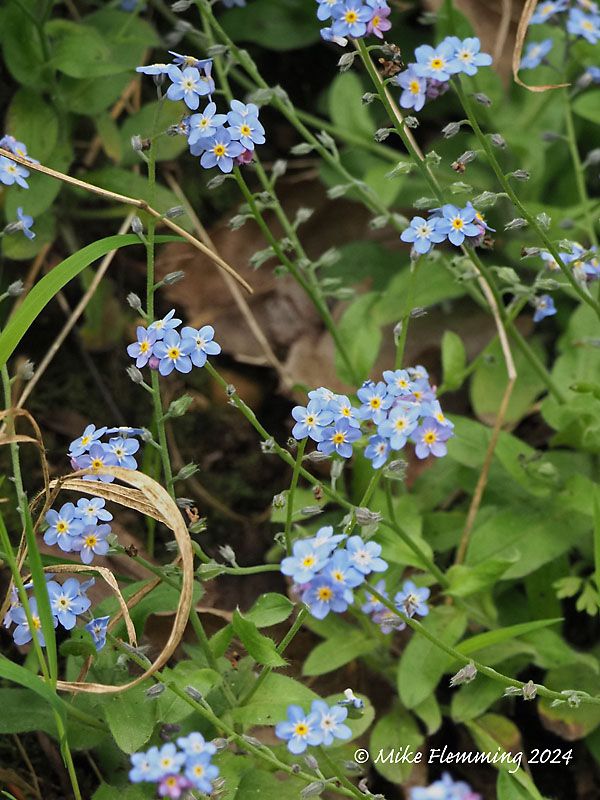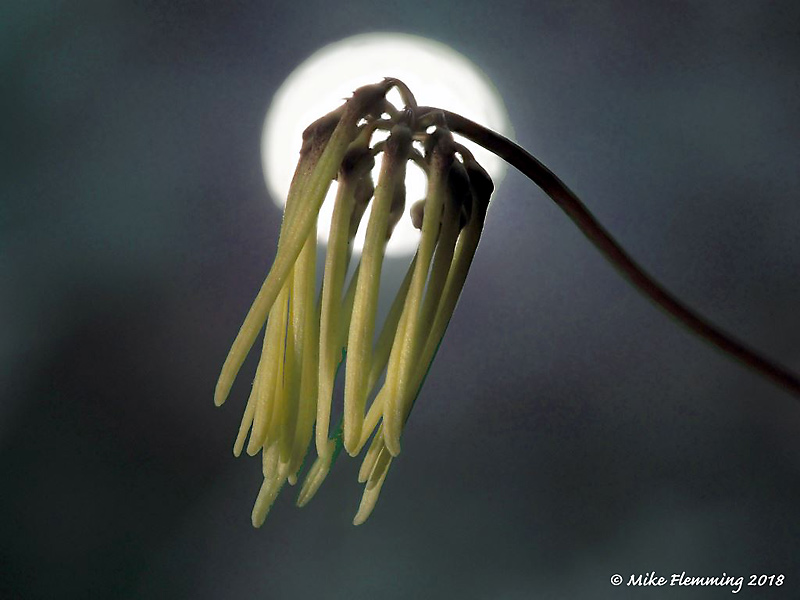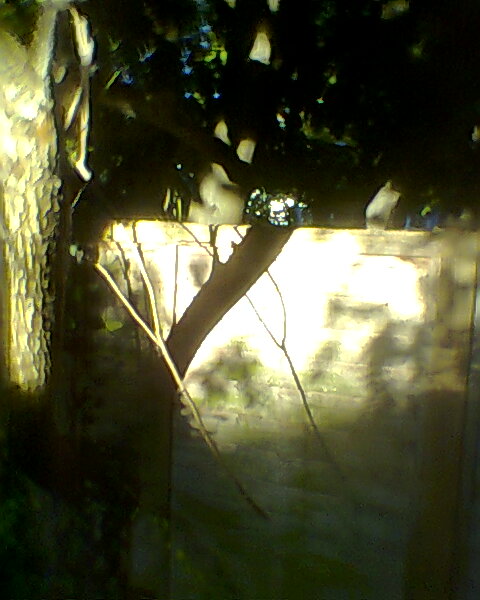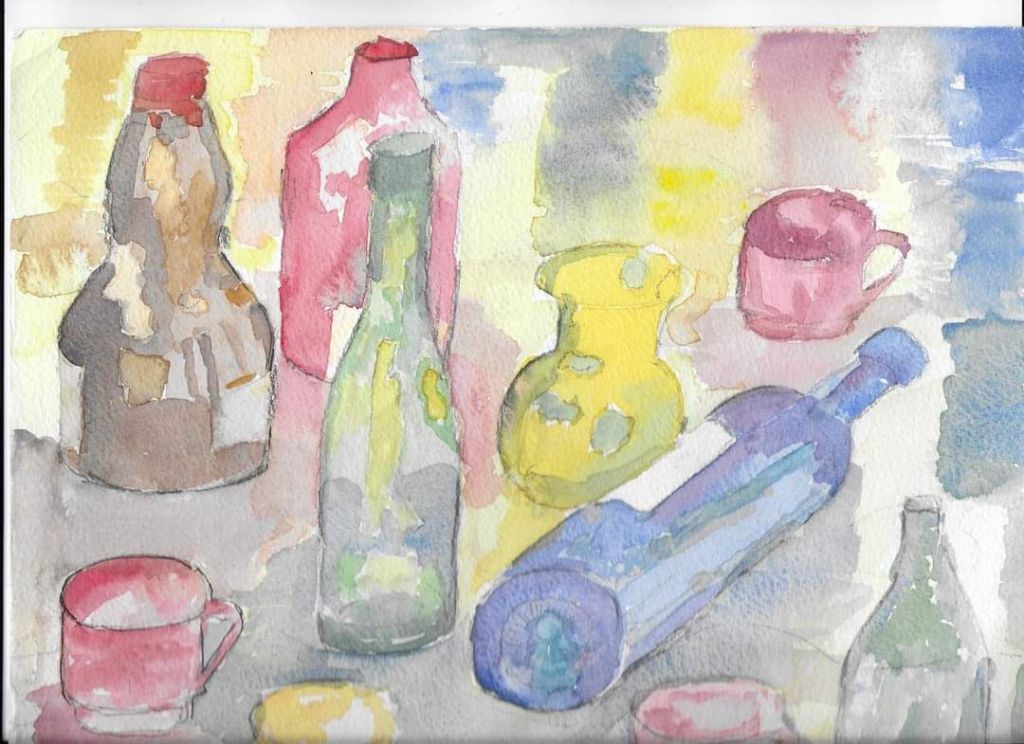
Behold the lilies of the field


For so long you loved and imitated me
Then we were students at the university
Without you, I won’t feel like anyone
To whom shall I turn when you are gone?
When you’re the one who shared my infant bed
When you’re the one who treasured all I said
When you’re the one I soothed in the dark night
When you are gone there can be no more light
When the moment comes,I must believe
For trees shall weep their leaves as if bereaved
Then will my sister heart with sadness heave.
Oh do not do not ,do not ,do not leave
Now the white rose decks the holly tree
White candles for the summer time to me
The mother plant has died but left this child
Climbing up the tree presumptuous, wild.
From the window, my astonished eyes
Saw a hundred flowers glow at sunrise
My mother had just died but left me this
The sight gave me new joy, a smile,a kiss.
To some this rose would be a weed malign
Strangling a great tree by cruel design
The tree is very strong and very tall
The white rose gleams as sparrows call.
The birds will nest protected by the thorns.
The roses with their fragrance bless the dawn

https://www.sparknotes.com/shakespeare/hamlet/quotes/page/5/
Who would these fardels bear,
To grunt and sweat under a weary life,
But that the dread of something after death,—
The undiscover’d country, from whose bourn
No traveller returns,—puzzles the will,
And makes us rather bear those ills we have
Than fly to others that we know not of?
Thus conscience does make cowards of us all;
And thus the native hue of resolution
Is sicklied o’er with the pale cast of thought;
And enterprises of great pith and moment,
With this regard, their currents turn awry,
And lose the name of action

There are superficial trends in our society to encourage us to build our self esteem and to value ourselves… to develop and achieve a place suited to our talents.. but what is best for me is when I lose myself in something.I was reading an old blog of a friend and was quite absorbed and went into a different state of mind..then I regretted I don’t manage to lose myself enoughb have an adult having much on my mind and being busy.
Sometimes it can happen when we love a person.Sometimes a wonderful landscape feels like home.. other times a sunset across the Irish sea from the cliffs of the Isle of Man where myriad butterflies swirl and float over flowers and rocks.
Modern life, the News,talk,excitement of the wrong sort seem to lock us into our self and frighten us so we forget the value of finding something in which to lose ourselves and grow as a result. Sitting by a river fishing,knitting,sewing,a book, many things can elicit this response And remember how horror filled was the self consciousness of adolescence and how good to forget one’s self being more comfortable and accepting of appearance and image..How to live like a wild flower for a time… and be happy not to be a rose but just a tiny wild geranium or a moderate sized gentle pink flower in a arden
.
How could you die and leave me all alone.
With a heart that’s cold and hard like a gravestone?.
How could you go before me into dark
Leaving me alone in this world stark?
It was not real until your soul flew out
Your body was still here, there was no doubt.
I sang the Psalms and then I murdered prayer
I pretended wisdom which was not quite there
I felt I had to let you go my dear.
Perfect love does not diminish fear.
I had never felt this pain so deep
The gravestones gaped, the blackbirds seemed to weep.
When I went back home I turned the key
Only my cat Alfred welcomed me
My face was torn in half my body crushed.
No mother’s lullaby, oh baby hush.
My spine has cracked in two, I barely stand.
Was this forevseen,my wedding band?
I took the golden ring and let it go.
Hush my baby hush now,it is so
W
Looking out across the River Lee
I could not see a place where you might be.
Tower blocks high and low stung both my eyes.
What use are sisters when they seem to die?
I could not see the road to take me home
I closed my lips so none might hear me moan
From another window I looked out
I saw a busy road and heard men shout.
The world was empty to my starving eye.
I saw the ice cream clouds as they went by.
The world I once could see was gone,was bare
I could not see your face,not anywhere.
How could you leave me in this desert harsh ?
The river Lea polluted stinks the marsh
There was no place where little birds could rest.
These feelings were a stone inside my chest.
I feel the grief without that blight despair.
And yet to others everything is fair

Who’re you? Wittgenstein?
He’s dead
What a shame
Actually would he enjoy living in England now
No, because he was Jewish.
So are lots of people.
Somehow they get hurt or even killed at times
What times?
Nazi.times
Stalin-times
Tsar-times
GoodFriday-times
Greedy-times
Allthe-time
In the Times
Of the times
Oh, time!
Well it’s about time we stopped it.
About time
On time
In time
After time
Time and Motion
Soon we’ll have the Flood
Why has Boris not built an Ark?
Because he doesn’t Noah how to
Because God didn’t see him
Because there was a full stop at the end of the sentence.

He wanted to put her teeth right out of his mind
Ruth Rendell
Out of sight out of mind
Old English adage.
Oh the mind has mountains…
Gerard Manley Hopkins
The mind is deeper than a well and higher than a star
That’s a line from one of my poems I believe.
 https://www.nybooks.com/articles/2007/12/06/auden-and-god/
https://www.nybooks.com/articles/2007/12/06/auden-and-god/
““To pray,” Auden wrote, “is to pay attention or, shall we say, to ‘listen’ to someone or something other than oneself. Whenever a man so concentrates his attention—be it on a landscape, or a poem or a geometrical problem or an idol or the True God—that he completely forgets his own ego and desires in listening to what the other has to say to him, he is praying.” This may seem a denatured idea of prayer, but Auden took it seriously, and seems to have prayed in exactly this sense. The only value he found in “petitionary prayer”—prayer that asks for something—was that the act of expressing desires can reveal what they are, so that “we often discover that they are really wishes that two-and-two should make three or five, as when St. Augustine realized that he was praying: ‘Lord, make me chaste, but not yet.’” Auden prayed to a God whom he knew he thought about in falsely human-centered terms, but only by doing so could he listen with any attention: “I can see…what leads [Paul] Tillich to speak of God as ‘Ground of Being,’ but if I try to pray: ‘O Thou Ground, have mercy upon us,’ I start to giggle.””
I hought more cyclamen and recalled you
Wandering through wildflowers by my side
I don’t know where to put them , they might die
Then I would feel so sad and lonely blue
All we read of pain and love is true.
Yet we let our hearts stay open wide
I bought some cyclamen and recalled you
Wandering through wildflowers by my side
I have loved not widely but a few
I have touched on bliss and when it flies
I have touched the grief that truly lies
I bought cyclamen and recalled you

Do not leave us for your lonely grave
Do not leave us here when you are gone
Do not leave my heart in blood to bathe
We need your kindness your work is not done
Do not leave a sister all alone
Do not leave a brother empty sad.
You who share my skin and share my bones
Come back come back live not with the Dead
Here’s your daughter with her newborn babe
Here’s your eldest son oh mother mine
Live again live again oh stay
Do not leave us yet without a sign
The tears run down our faces but too late.
The human world’s not ours to navigate
“
I have walked the silent paths of grief
Sunless,dreary,cold and all alone.
I have slept on beds of winter leaves.
I know that death’s a greedy starving thief.
Although my heart weeps and my joy has gone.
I have never felt I was deceived.
I have learned that human life is brief.
I have learned by sorrow we’re undone.
I have sifted earth and what’s beneath.
I have felt the dark emotions seethe
I’ve felt cruelly burned by glaring sun.
I have learned the geography of grief.
I wait in sorrow for this life to cease
Yet some are never loved by anyone
I have dreamed in beds of winter leaves
Unconsoled grief can make us dumb
Into our hearts, we drag the ice that numbs
I have walked the silent paths of grief
I have made my bed on winter leaves

When my love lies and breaks my little heart
. When life seems grey and rocks bestrew my path
. Then, shall I my life of evil start
And on the world shall I bestow my wrath?
For I have love’s own child inside my soul
And I shall tend her till at last she’s whole

I jumped out of my skin when she rang the bell
I was in two minds about what to do after the conference.
I couldn’t make up my mind.
I nearly lost my mind when I was in the hospital I wonder if they keep them the lost property department.
I have no mind for murder
She has taken leave of her senses
You must be out of your mind
I was beside myself in the hospital.
I was hoping for a bird’s eye view.
His eyes nearly came out of his head
He was there but absent from his body
They hear but they don’t listen
He that has ears to hear let him hear.
She looked right through me.
I was in a brown study so I didn’t hear a thing he said.
Doctor I don’t feel myself at all today.
You don’t seem like the man I am married.
He looked weighed down with guilt
Inhabited by a deeper self
In touch with all that in me dwells
I leave my failures gladly here
I will not live in morbid fear
I don’t insult the force divine
By pride in any good that’s mine
For willpower cannot birth virtue
But can attend to the eye’s view
By trusting in the vast unknown
We turn attention from the known.
Our eyes relax and gaze without
To bring proportion to our doubts
Trust, itself. will widen gaze
And enable us to find our ways.
With terror, fear or loss of pride
Constriction comes to human eyes.
Perception is the highest good
By what we see, we choose our road.
The blind rush like the swine to hell
In patient, watchfulness let’s dwell.
From the mangled chaos of the lines
Emerge strange forms and all too telling tales
O life satanic and O loss divine
Faces will make then themselves, define
From the compost and the deathly rail
And the mangled chaos of the lines
There is never reason nor a rhyme
As Jonah found when sucked in by a whale
O life satanic and o loss divine
What is living but a life of crime?
Whether trained in Borstal or at Yale
Feel the mangled chaos of the lines
We wander, having leaders well outgrown
Some days it is hell and we just crawl
O life satanic and o loss divine
I believe, in bitterness and gall,
We must hold our spirits as they fall
Dark the mangled chaos of our lives
O love satanic and O loss divine
Inside my heart, this sacred place
Where freely mingle truth and grace
Where friends and enemies alike
Are viewed as equals for love’s sake
Inhabited by deeper self
In touch with soul that in me dwells
I leave my failures gladly here
I will not live in morbid fear
I don’t insult the force divine
By pride in any good that’s mine
For willpower cannot birth virtue
But can attend to the eye’s view
By trusting in the vast unknown
Attention spreads, fear’s overthrown
Our eyes relax and gaze without
To bring proportion to our doubts
Trust, itself. will widen gaze
Enable us to find our ways.
With terror, fear or loss of pride
Constriction comes to human eyes.
Perception is the highest good
By what we see, we choose our road.
The blind rush like the swine to hell
In patient, watchfulness let’s dwell.

Photo by Mike Flemming copyright
https://www.cairn-int.info/article-E_RHR_2261_0032–from-reformation-to-renaissance.htm
Extract
Two undeniable facts remain: the Anglican Reformation did not actually lead to any form of poetic engagement nor did it produce the sort of politically inspired poetry that is associated with the French epic poems of Agrippa d’Aubigné.[1] One of the rare exceptions was a sonnet by Milton “On…[1] It was not until the beginning of the seventeenth century that the first poems bearing the spiritual influences of the Reformation appeared. This is a result of the transposition whereby England is neither the birthplace nor the promised land of the Reformation, but a significant hub where the continental prototypes were adapted under Anglicanism and subsequently exported in its new idiosyncratic form to the New World, the chosen land of the Puritans. A complete overview of the subject would also include the Puritan literature of New England,[2] See Perry Miller, ed., The American Puritans. Their…[2] but this would merely highlight the rarity of poetry amongst a generation of pragmatic colonists, who were far more preoccupied with establishing permanent settlements than making an epic gesture that would aggrandize them in the eyes of all posterity.
6
However, back in England at the beginning of the seventeenth century, poetry was undergoing a reformation. The long reign of Elizabeth I (1558–1603) was conducive to political stability, to the flourishing of the arts, and a literature enriched by court poets such as Philip Sydney (1554–1586) and Edmund Spenser (1552–1599), who embroidered versions around the myth of the Virgin Queen that were both epic (The Faerie Queene, 1590–1599) and pastoral (Arcadia, 1590). At court there was a throng of fine and erudite minds whose rhetorical education drew not only on the Greco-Roman culture brought back into favor by the humanists, but also on the Bible, the core text for the schools of rhetoric based on the reformation of knowledge initiated by John Colet (1466–1519, a friend of Erasmus and Thomas More, and founder of St. Paul’s School in London). Many of these poets were no longer alive when the translation of the King James Bible was published in 1611 (Sydney died in 1586, Spenser in 1599). Nevertheless, as humanists, the poets were highly knowledgeable and were able to translate, gloss, or imitate the Psalms without fail.
7
By the time the great metaphysical poets (Donne, Herbert, Vaughan, Crashaw) provided spirituality in English poetry, with its real momentum during the first years of the seventeenth century, these rhetorical exercises around the Psalms had already become great classics, thus allowing a young poet to shape his style through his juvenilia, before embarking on original creative works. Thus, the English were initiated at the same school as Racan, Corneille, and Racine, or again Gryphius and Angelus Silesius. In addition to Sydney, it is worth noting: the Scotsman and Lutheran George Buchanan (1506–1582), author of a Latin Paraphrase of all the Psalms (written in 1566), a work which was re-published twenty-six times in the course of one hundred and fifty years; the court poet Thomas Carew (1594–1640) who wrote his paraphrases in English; and the sacred epigrams rendered in Latin by two metaphysical poets, the Anglican George Herbert (1593–1633: Passio Discerpta – Rendings from the Passion, and Lucus – the Sacred Grove) and the Puritan-born Catholic Richard Crashaw (1612–1649, Epigrammatum Liber, 1634). All these examples are in fact more interesting from a linguistic rather than a stylistic point of view in that they are the last remnants of neo-Latin[3] See Pierre Laurens and Claudie Balavoine, ed., Musae…[3] literature of English origin. Having left these schoolboy exercises behind, a seventeenth century English poet would henceforth write in his mother tongue, and especially so when he sought to move nearer to God.
8
Why then were these poets so drawn to the Psalms? It was not particular to the English, but to the very essence of the Reformation in its most profound form. By making the human voice heard with its full spectrum of contradictory emotions, they opened the way for lyricism, which had already been heartily encouraged by the devotia moderna, promoting the individual piety of the layman through the ideal of the imitation of Christ (Low Countries, fourteenth century). Subjectivity then would know no bounds. It would be possible for every human being to seek in the voice of David the accents that corresponded to his own voice and then to cry in wonder: “Oh, to vex me, contraries meet in one,”[4] John Donne (1572–1631), Divine Poems, vol. 1, No. 19,…[4] and from this torment draw almost unlimited poetic inspiration.
9
Amongst human nature’s innumerable contradictions carried within this voice, there is the clash of a resounding paradox: to allow humans to speak enables the voice of God to be heard more than ever. What the Reformation poet seeks above all is a dialogue. Perhaps it is the fear of being crushed by the Calvinistic theory of double predestinationism, which would have God isolated in a state of transcendence so distant, indeed so remote, that any communication with Him would be threatened. God would surely then become a complete alterity, to be approached only with fear and trembling (Luther), for this God might only manifest himself in the form of some spiritual death sentence, like the prophetic writing on the wall telling Balthazar of his imminent end.[5] See Rembrandt, The Writing on the Wall, The National…[5] The hope of salvation (revealed in the inamissible grace of the conversion) transforms a person into an anxious lookout, forced to watch relentlessly lest he be blind or deaf to the signs that God may send to make known his will.

Thanks for all those calls and letters
Thanks for caring that I’m here.
In my darkest, lonesome moments
These replies will keep you near.
Thanks for answering all my emails
Thank you for the hours you give.
Thanks for sharing heartfelt thoughts
And being so generous with your love.
Thank you for your wit and grace,
Thank for your funny face.
Thank you for your deep blue gaze and
Thank you for your warm embrace.
Thank you,thank you,thank you,thank.
Love you,love you,love you,Love.
Thank you,thank you,thanks to you,
Because,because,because,Because
 https://www.poetryfoundation.org/harriet/2010/04/humor-and-poetry
https://www.poetryfoundation.org/harriet/2010/04/humor-and-poetry
Extract:
In 1993, I took a left turn one day out of my MFA program and found myself at the National Poetry Slam in San Francisco. There I discovered several poets who were funny for the sake of being funny. Particularly Hal Sirowitz from New York (“don’t stick your arm out the window, mother said” and Matt Cook from Milwaukee (“it was easy to write the Great American Novel, back when there were only five American novels”) Both poets initially delighted me and confounded me: There are no similes, a voice in my head said. What would Tom Lux (my first teacher) say? the voice continued. Despite my resistance, I believe those poets gave me a kind of permission to explore humor a little more vigorously in my second book, The Forgiveness Parade (1998), for “I thought the word loin and the word lion were the same thing. I thought celibate was a kind of fish”. Perhaps in that book there were places where I was too vigorous in my pursuit: looking back there are a few poems that are just a little too jokey somehow, a little one-dimensional.
I am becoming aware of how some humor can set a roadblock for the poetic speaker, making it impossible for the speaker to get back to a serious place. And how some other (less frequent) uses of humor can leave that door open. I want to leave that door open
How like a prison is my cubicle How wary is my body on this chair. How still my heart and yet how truly fickle. How fast it flies to you who are not here. How elegant your letters and your thoughts How gentle was your touch upon my throat. And yet you killed my words and all I brought... You were no lover but a randy goat. As in this mental jail I'm neatly trapped, I'll use this time to write and also pray. Perhaps my mind can extricate a map.. From which I'll plot the route to get away. The prisons which seem external are inside Yet in such captive grief, we humans die.
The weight of those who’ve gone pulls at my heart
They have wound me with their ropes so they can tug
And as I stumble through this world’s sick fog
I wonder how long we will be apart.
Should I cut the ropes that bind me hard?
Must I be sister cruel to those who’ve died?
They won’t want to know how much I’ve cried
Should I walk away from all we shared?
In the early morning, in the night.
I lie alone too long before the dawn.
Weeping at the moon . oh broken heart.
The images of loved ones hurt my sight.
But I must cut the ropes and venture on.
Weep no more for all the ones who’ve gone